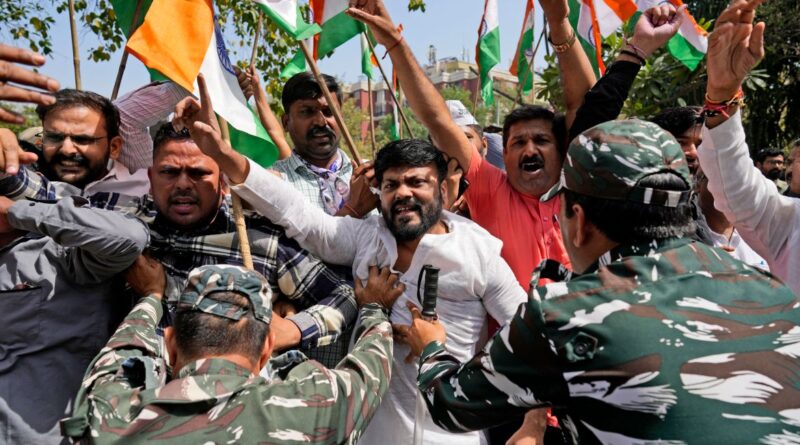Elusive Justice: Unraveling the North-East Delhi Riots Cases
More than 80% of the 116 adjudicated cases relating to the 2020 North-East Delhi riots have led to acquittals or discharges, demonstrating a concerning trend. Five years post these violent disruptions, justice appears elusive, and has been wielded as a political tool instead.
A significant number of activists are currently detained for extended periods without formal trials, denied bail by enacting stringent laws such as the Unlawful Activities (Prevention) Act. As many of these activists are in limbo, the system that should allow for their fair trial is instead playing a role in their prolonged incarceration.
Conversely, multiple instances have seen the courts reproach the law enforcement for concocted witnesses and doctored evidence. The court’s observations point towards an alarming scenario where police allegedly create non-existent crimes, thus erroneously implicating innocent citizens.
According to these observations from the court, it would appear that the police, in these instances, have enacted what could most accurately be termed as crimes in themselves. These are serious allegations, suggesting a deeply entrenched culture of fabrication within the force.
A rhetorical question that begins to form when coming to terms with these troubling revelations is this: why are courts averse to instituting criminal trials against the police for perjury and obstructing justice? The answer to this query holds immense importance in understanding the dynamics between the courts and the police force.
Why is the severity of the law prominently applied to those who are yet to be convicted or, in some circumstances, not even formally tried, while the police force, often criticized by the courts, is granted leniency?
One starts to ponder, if law enforcement officers are aware that the courts will not hold them accountable for false claims and fabrications, who then could possibly muster the courage to resist political pressure from above? The looming threat of being made to face trumped-up charges or being coerced into obtaining convictions by unjust means could significantly affect the dispensation of justice.
Fair proceedings based on the due process of law are the cornerstone of any justice system. Still, if the guardians of this principle themselves resort to manipulation of the process, it presents an alarming situation that could shake public faith.
The justice system should hold all stakeholders accountable, ensuring that everyone from activists of civil society to law enforcement personnel adheres to these principles. Nonetheless, the pattern of ongoing cases and acquittals seems to stir questions on this practice.
If the people responsible for upholding the law are themselves involved in crafting non-existent crimes and facing no reprehension, significant barriers stand in front of achieving justice.
Such practices not only cast aspersions on the integrity of these law enforcement officers but also contribute significantly to undermining the legitimacy and efficacy of the justice system. This could potentially lead to a wary and disillusioned citizenry.
The course of justice should predominantly involve the law’s fair application, not bending it to suit political agendas or exploiting it to exert undemocratic pressure on the accused.
The reluctance to legally penalize law enforcement agencies for their missteps creates a dangerous precedent. This could potentially embolden such practices, obstructing justice and derailing the path to fair trial – further eroding human rights.
An effective justice system relies heavily on the honesty and integrity of those tasked with upholding the law. Any compromise in this regard not only serves to deny justice but may also sow seeds of mistrust among citizens.
Essentially, the pivotal question is – Can the justice system withstand undue political pressure and ensure lawful, genuine procedures for all? The response to this question is consequential in determining the pathway our justice system deems to follow.

